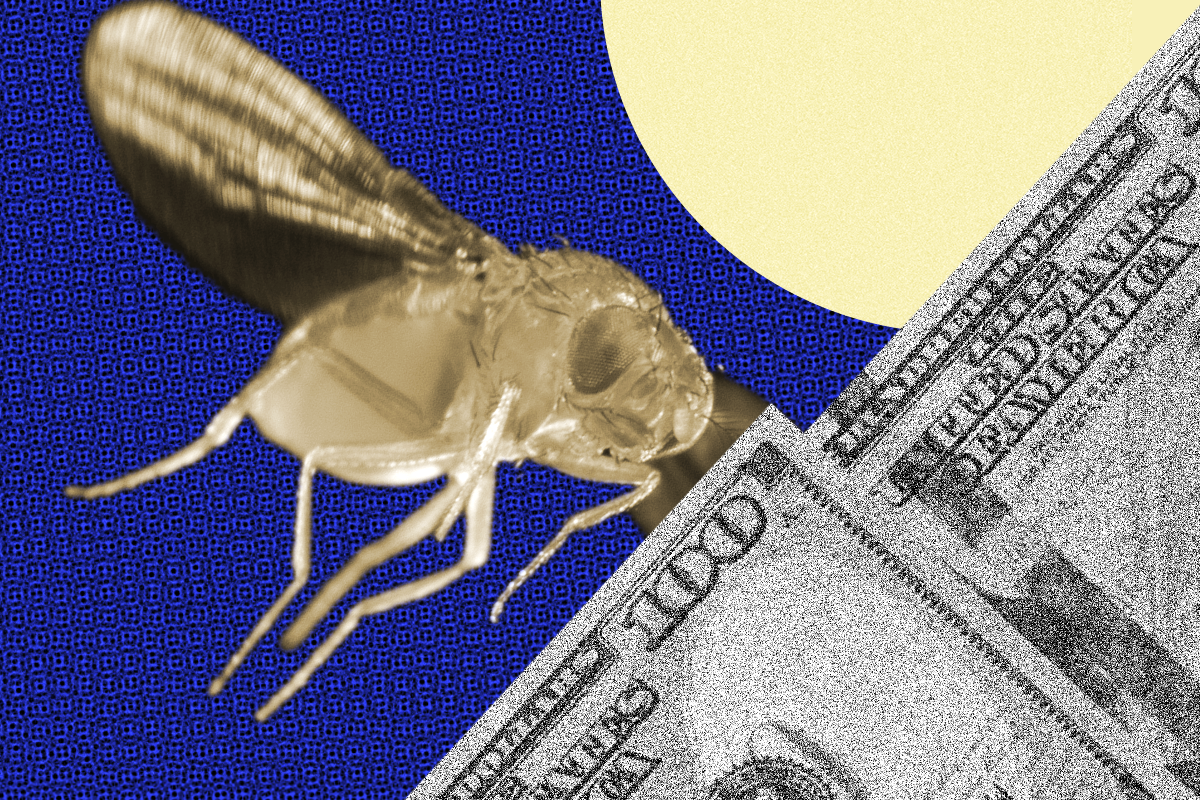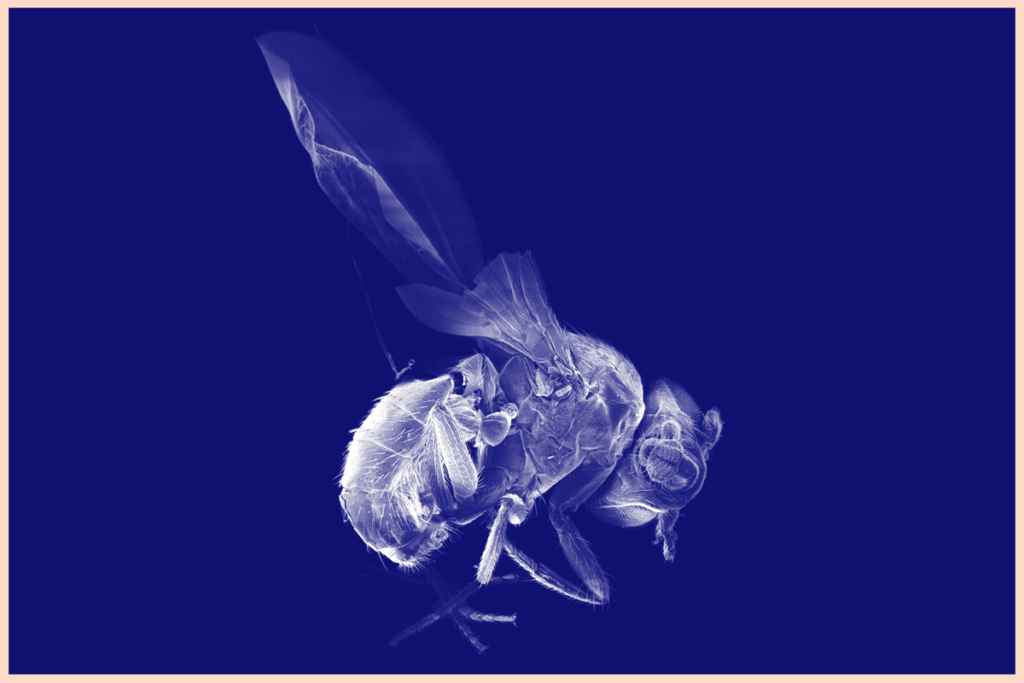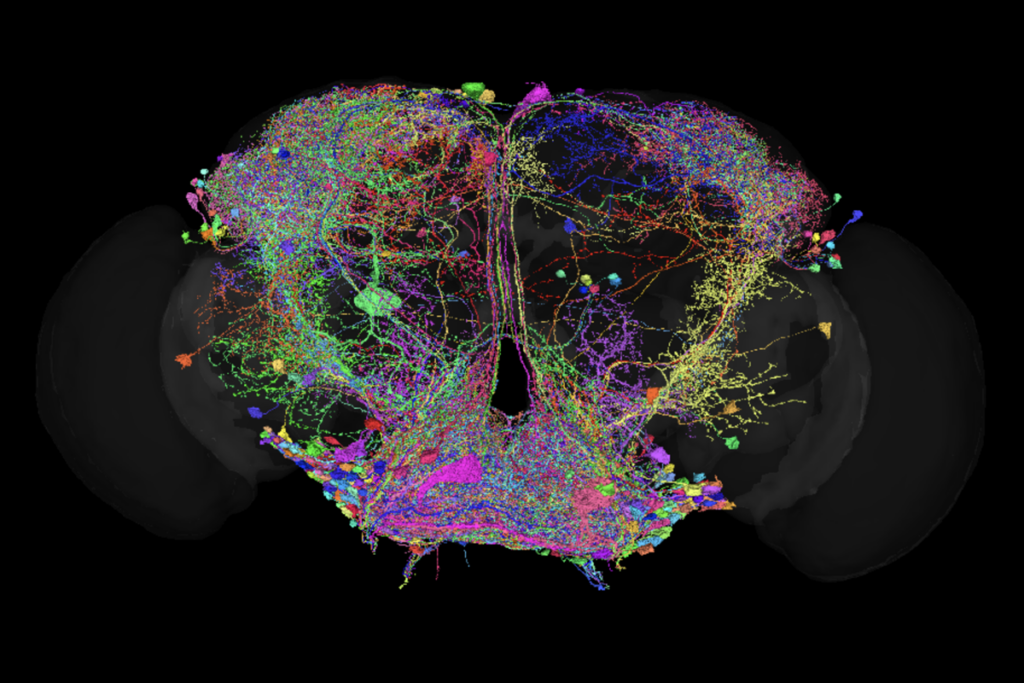The team behind a foundational resource for Drosophila researchers has fundraised enough money to continue running for at least a year.
The resource, called FlyBase, contains information about Drosophila genes, phenotypes, research papers and available tools and genetic stocks. The successful fundraising followed reporting by The Transmitter about the project’s canceled grant and resulting layoffs.
“Every time I have a question about what’s known about a gene or what tools are available to study it, my first stop is FlyBase,” says Anita Devineni, assistant professor of biology at Emory University. “I’m relieved to hear that FlyBase will be supported for the next year.”
The FlyBase team is distributed among several institutions but has received funding from the National Human Genome Research Institute since 1992 through a grant awarded to Harvard University. The grant was renewed in April 2024 and slated to run through January 2029.
But in May, the grant was part of the more than $2 billion in federal funding to Harvard that the U.S. government canceled. As a result, the Harvard team laid off members of the FlyBase team, The Transmitter previously reported.
FlyBase appealed to the community for donations to keep the resource up and running. The U.S. portion of the team has raised about $150,000 so far, says Brian Calvi, professor of biology and principal investigator of FlyBase at Indiana University Bloomington. This amount, in addition to funds raised by the part of the team based in England, can support the remaining staff for at least the next year, according to an announcement posted earlier this month on the FlyBase webpage.
“A significant philanthropic gift” came in after one donor read The Transmitter’s coverage, principal investigator Norbert Perrimon, professor of genetics at Harvard Medical School, wrote in an email to The Transmitter. The team is not planning any additional layoffs, he says.
In total, the funds mean the FlyBase curation team can continue combing the literature to find recent Drosophila papers to add to the database, says Eric Lai, member of the the Developmental Biology Program at Memorial Sloan Kettering Cancer Center and president of the Fly Board, a group of scientists elected to advocate for the Drosophila research community.
“We know we can trust the information we find on FlyBase, and that’s thanks to the hard work of the curation team,” Devineni says.
The future of the resource’s federal funding remains unclear. A U.S. district court judge ruled in September that it was unconstitutional for the government to cancel Harvard’s funding; a majority of the university’s funding has since been restored, according to The Harvard Crimson.
“We have no news regarding the FlyBase grant,” Perrimon says.
Harvard University did not respond to emailed questions about the status of the grant.
The fundraised money will also support FlyBase’s integration into the Alliance of Genome Resources, an effort funded by the National Human Genome Research Institute that pools several model organism resources into a centralized database. FlyBase was already planning to migrate to the alliance, but now the team is trying to speed that process up; it will likely take two to three years, Perrimon says.
There is still “an urgent need for donations from the community” as the team works on this migration, Lai says. Donors in the United States can contribute to the FlyBase team based at Indiana University Bloomington, and those in Europe can donate to the University of Cambridge site. The team is currently working out an invoice system so researchers can use their grant funding to contribute, Lai says.






